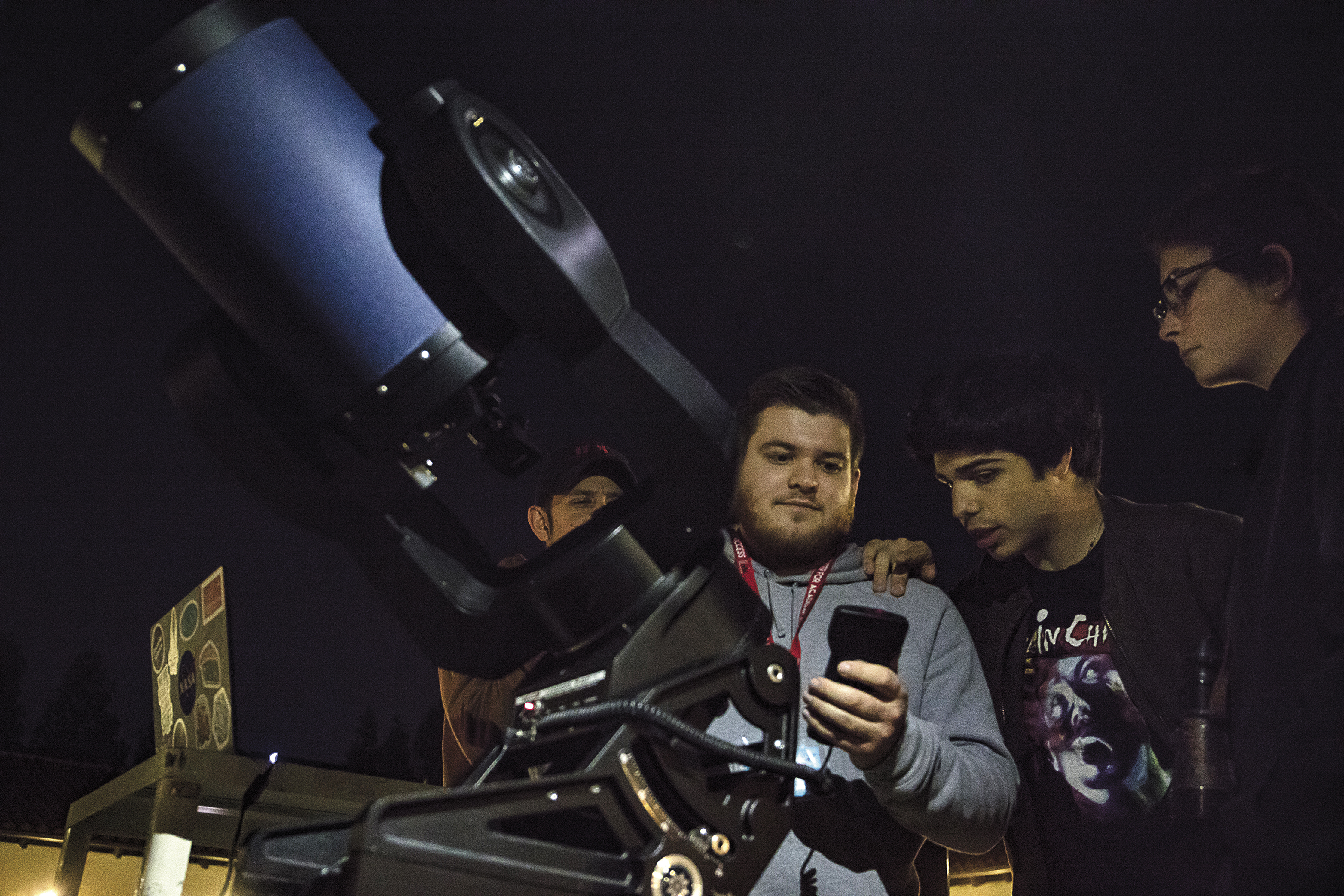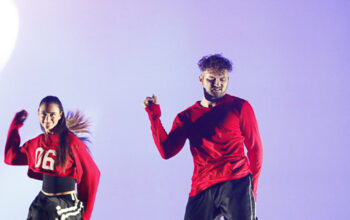
From a heated Thanksgiving weekend to a drop in temperatures Monday, students bundled up and stargazed at the clear night sky.
The Physics and Planetary Sciences Department hosted its second Telescope Night of the semester. Besides the weather, telescopes were brought out for students to use.
Dale Fields, the department chair, moved the telescopes to align with stars and planets, however, some were interfered by light, which prevented them from being seen.
“It’s a lot of fun to come out and do this. Sometimes we get a group, sometimes we get church groups,” Dale said. “I like it when there’s a lot of little kids, because if there’s a kid, and they’ve never seen Saturn, and you hear that high pitch squeal. It’s just a lot of fun.”
A variety of speeds are used on the telescopes to get to a specific area of what they want to see. Halfway through the night, Fields said they lost Saturn after it faded behind the buildings.
Fields said he checks the weather in advance to see the cloud cover percentages.
Fields said his astronomy tutors were helping him align the telescope to view the planets and stars, but also take photos of them.
“Working with our tutors here, I learned a lot from them as well,” Fields said.
Astronomy tutor Joshua Becker has been helping with Telescope Night for a few semester and was using a Nikon lens to take a photo of the Ring Nebula.
“We’re trying to get these pointed and aligned at Vega,” Becker said. “And by picking two stars, it tells the telescope where it is, because it could triangulate and know exactly where it is in space.”
According to Becker, one of the stars they were trying to take a photo of was the Ring Nebula. Becker said the star was at it’s end of its lifetime when it exploded.
Alice Gordon and Michael Kouyoumdjian are in Fields class and said they both enjoy attending the Telescope Nights.
“I’ve been to other viewings before, and he also has planetarium viewings, and that’s really cool,” Gordon said. “This is the second time I’m out here looking at the stuff in the sky. The last time we saw the Rings of Saturn.”
Kouyoumdjian said the telescope they were trying to align takes photographs of the sky.
“It counter the rotation of the Earth, better than a different telescope,” Kouyoumdjian said. “As the earth is spinning, you need to follow the object.”
Fields said he has been organizing Telescopes Nights the last few semesters, and he also organizes Planetariums for students and the community to enjoy.
“We have one typically early on and one pretty late so we can get different parts of the sky, because the sky constantly changes over the course of the year,” Fields said. “It’s the same sky, but we get different chunks of it at different times.”
At night, Pierce students explain and demonstrate to guests what they are viewing in different parts of the night sky.
“Whenever dealing with computer screens, there’s always CG graphics, so we never really know if what we see on TV is real, but to actually look through a telescope at a planet with your own eyes, this thing really actually exists out there,” Fields said. “I think that’s a valuable and really fun thing.”



